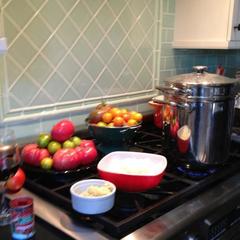-
Welcome to the eG Forums, a service of the eGullet Society for Culinary Arts & Letters. The Society is a 501(c)3 not-for-profit organization dedicated to the advancement of the culinary arts. These advertising-free forums are provided free of charge through donations from Society members. Anyone may read the forums, but to post you must create a free account.
Battery Chicken On Telly
-
Similar Content
-
- 30 replies
- 9,794 views
-
- 6 replies
- 416 views
-
- 91 replies
- 35,511 views
-
- 13 replies
- 9,407 views
-
- 7 replies
- 1,576 views
-
-
Recently Browsing 0 members
- No registered users viewing this page.




Recommended Posts